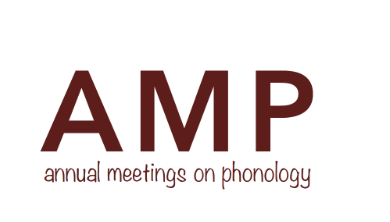Phasal strength in A'ingae classifying subordination
Abstract
I present and analyze aspects of the phonology of subordinate verbs in A'ingae (or Cofán, ISO 639-3: con), an understudied and endangered Amazonian isolate. In A'ingae, inflected verbs subordinated with nominal classifiers show patterns of stress and glottalization sensitive to the prior inflection present on the verb. This violates bracket erasure, an otherwise robust empirical generalization that states that phonological grammar cannot access morphological information from previous cycles (Kiparsky, 1982). To account for the subordinator's sensitivity to the morphological structure of the inflected verb, I introduce a family of phase-indexed faithfulness constraints. Like McPherson & Heath's (2016) phase faithfulness, these constraints allow for modeling cases where previous phonological evaluation results in greater faithfulness. The addition of indexation keeps track of the previous phase's category, allowing for faithfulness specific to particular phases.
How to Cite:
Dąbkowski, M., (2025) “Phasal strength in A'ingae classifying subordination”, Proceedings of the Annual Meetings on Phonology 1(1). doi: https://doi.org/10.7275/amphonology.3012
Downloads:
Download PDF
752 Views
484 Downloads
